![People in Seoul watch a TV report on May 25, 2018, after US President Trump canceled the planned summit with North Korean leader]](https://contents-cdn.viewus.co.kr/image/2025/07/CP-2023-0309/30841166.jpg) With just over 100 days remaining before the Asia-Pacific summit in South Korea, questions are emerging about whether U.S. President Donald Trump would seek to restart long-stalled diplomacy with North Korea should he decide to attend this high-profile gathering.
With just over 100 days remaining before the Asia-Pacific summit in South Korea, questions are emerging about whether U.S. President Donald Trump would seek to restart long-stalled diplomacy with North Korea should he decide to attend this high-profile gathering.
Trump has expressed openness to reengaging with Kim, boasting of his good relationship with the reclusive leader. Late last month, he stated that the United States would resolve any conflict with North Korea if one exists – another indication of his desire to resume dialogue with Pyongyang.
Despite Trump’s repeated interest in restarting dialogue with Kim, the unpalatable reality is that much depends on whether Kim will respond to any diplomatic overtures from the U.S. president, especially as Pyongyang enjoys deepening ties with Moscow.
Andrew Yeo, the SK-Korea Foundation chair at the Brookings Institution’s Center for East Asia Policy Studies, told Yonhap News Agency via email, “I wouldn’t be surprised if the Trump administration makes efforts to see if Kim might agree to meet.”
“But it will be Kim, not Trump, who decides whether a meeting is possible,” he added.
Rob Rapson, former acting U.S. ambassador to South Korea, noted that given Trump’s flair for the dramatic, a visit, meeting, or interaction with Kim somewhere in North Korea around the time of the APEC leaders’ meeting cannot be completely ruled out.
Rapson made these remarks while recalling the impromptu meeting between Trump and Kim at the inter-Korean truce village of Panmunjom in June 2019. It was one of three meetings the leaders have had, including the first in Singapore in June 2018 and the second in Hanoi in February 2019.
On Tuesday, South Korea’s presidential office announced it had sent invitation letters to the leaders of the 21 APEC member economies, including the U.S., China, Japan, and Russia, as it intensifies preparations for the Gyeongju summit under the theme “Building a Sustainable Tomorrow.”
Cho Hyun, the nominee for foreign minister, told a parliamentary hearing this week that the likelihood of Trump attending the APEC summit is considerably high, though he did not elaborate on his reasoning.
Should Trump’s APEC participation materialize, analysts predict he might make a diplomatic gesture toward Kim. This aligns with Trump’s vow to become a peacemaker, as seen in his continued efforts to end the conflicts between Russia and Ukraine and between Israel and Hamas.
However, doubts persist about the prospects for reengagement. Pyongyang appears to have little appetite for talks with Washington, especially as it relies on Moscow for food, fuel, military support, and other forms of aid under a comprehensive strategic partnership treaty signed in June last year.
Last month, NK News reported that North Korean diplomats in New York refused to accept a letter from Trump aimed at reestablishing communication channels between Washington and Pyongyang – a sign that North Korea is not ready for talks with the U.S.
Nevertheless, a window for engagement could open if Kim decides to reduce – or at least modulate – reliance on Russia. Moscow’s support for North Korea could diminish suddenly when the war in Ukraine winds down, eliminating its need to depend on Pyongyang for military supplies.
Should dialogue between Trump and Kim resume, North Korea’s nuclear issue is likely to top the agenda, given Trump’s stated commitment to the complete denuclearization of North Korea.
However, many believe that reaching a denuclearization deal with North Korea might be more challenging than in past negotiations. This is due to the significant progress the regime has made in its nuclear and ballistic missile programs in recent years.
The Trump administration’s recent strike on key Iranian nuclear facilities may have further reinforced Pyongyang’s belief that it should cling to its nuclear “treasure sword” rather than risk bargaining it away and potentially exposing itself to foreign attacks.
Victor Cha, president of the Geopolitics and Foreign Policy Department at the Center for Strategic and International Studies, said during a recent CSIS event, “I think one of the costs of our bombing of Iran is that we may have essentially ended CVID with North Korea – complete, verifiable, irreversible denuclearization with North Korea.”
“The lesson North Korea has likely taken from this is that they need to keep their weapons to avoid a dozen massive ordnance penetrators being dropped on North Korea, as they were on Iran. If anything, they are reaffirmed in their view that they have pursued the right path.”
Trump’s potential engagement with Pyongyang could align with the North Korea policy of new South Korean President Lee Jae-myung’s administration. Lee has expressed hope to improve inter-Korean relations following a rough patch under the former conservative government of President Yoon Suk-yeol.
In a conciliatory gesture last month, the Lee administration suspended loudspeaker propaganda broadcasts against the North along the inter-Korean border, raising cautious hope for improvement in frosty cross-border ties.
During his campaign, Lee also pledged to restore the 2018 inter-Korean military tension reduction pact, which was suspended amid tensions between Seoul and Pyongyang during the Yoon administration.
Despite the allies’ willingness to engage with North Korea, analysts stress the importance of close policy coordination to avoid unnecessary diplomatic friction. There are concerns that Trump’s direct approach to the North could risk sidelining or bypassing South Korea in U.S. diplomatic outreach.
Beyond the North Korean issue, Trump might face a full agenda should he join the APEC summit. Key topics could include tariff issues and his administration’s call for greater burden-sharing with regional allies and partners, including South Korea.
Rapson remarked, “2025 is perhaps the most challenging APEC year in recent memory, if ever, given the turbulence in the region and beyond generated largely by President Trump and his administration’s aggressive trade, investment, and security burden-sharing policies.”
Yeo anticipated that if Trump attends the APEC summit, he may discuss new tariffs and trade deals with Asia-Pacific countries, and address America’s role in the region and the importance of the Indo-Pacific, a region home to the U.S.’s geopolitical rival, China.
Given Trump’s general disdain for multilateral forums, especially where he is not the lead or center of attention, Rapson pointed out that questions are being raised about what role he might play at the APEC summit: spoiler, disrupter, facilitator, or other roles. (Yonhap)


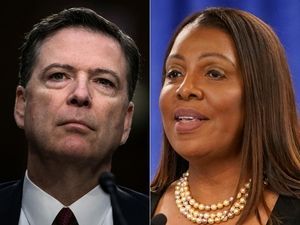
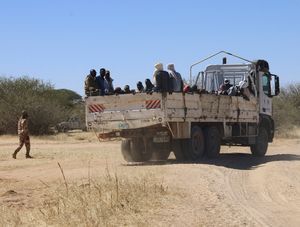
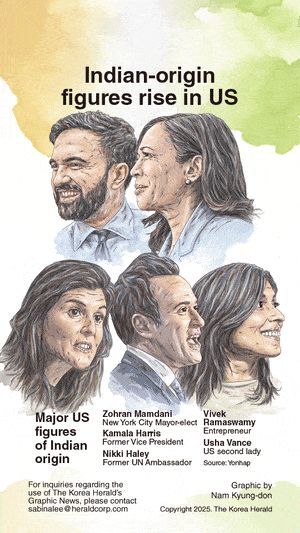
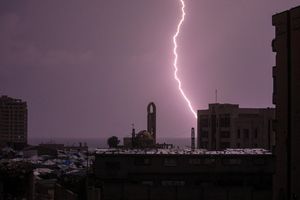
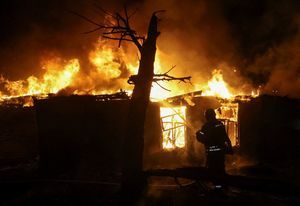



Most Commented